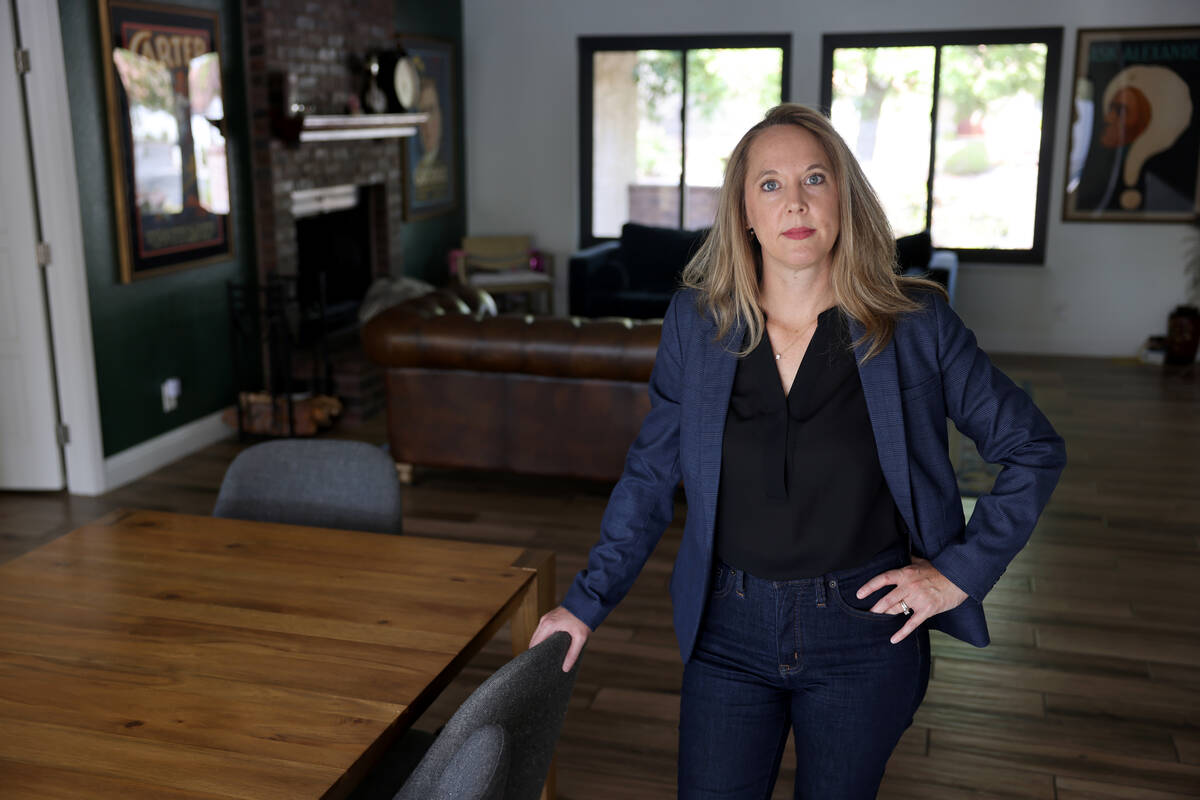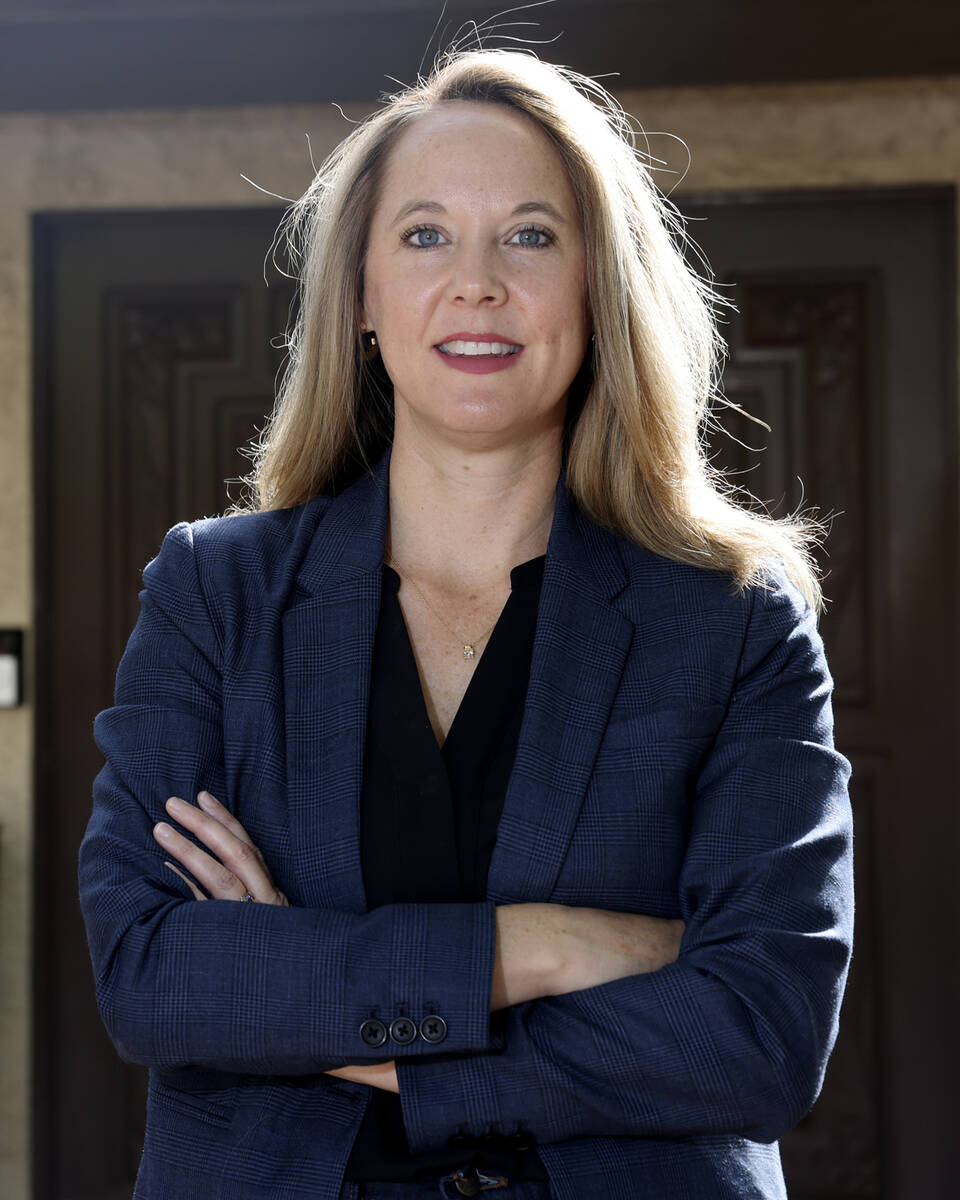Nevadans form anti-nuclear testing coalition amid resumption calls
While Nevada once was a site of the country’s nuclear testing and continues to play a critical role in the maintenance of the nation’s nuclear stockpile, some Silver State residents are raising the alarm about the potential of nuclear testing again.
Nevadans Against Nuclear Testing, a coalition of organizations, business leaders, elected officials and residents, announced its formation Thursday to voice opposition to calls to resume explosive nuclear testing in a state still seeing the effects of the testing years later.
“Anytime we’re talking about anything that would put our groundwater at risk and put Nevada lives at risk is something that, from a pragmatic standpoint, is just a nonstarter,” said Kristee Watson, executive director of the Nevada Conservation League, which is part of the coalition.
Nuclear testing has been under a moratorium for 32 years through the Nuclear Test Ban Treaty. If it were to resume, it would occur underground at a site just 65 miles northwest of Las Vegas at the Nevada National Security Site, formerly called the Nevada Test Site, which served as the location for hundreds of atmospheric and underground nuclear explosion tests during the Cold War.
Nevada, and the country as a whole, has not conducted an explosive nuclear test since 1992 when President George H.W. Bush signed legislation imposing a moratorium on nuclear testing. Since then, the Nevada National Security Site’s primary mission has been to support nuclear nonproliferation, or preventing an increase in nuclear weapons, and maintenance of the country’s aging nuclear stockpile.
International backdrop
Calls for resuming nuclear testing have grown in the last few months due to foreign adversaries’ interest in nuclear testing.
Whether implicitly or explicitly, Russia has threatened the use of nuclear weapons, and the U.S. intelligence community has warned that China may be tripling the size of its nuclear weapons stockpile to match it to that of the U.S. and Russia, according to Ernest Moniz, co-chair and CEO of the Nuclear Threat Initiative, a nonprofit, nonpartisan global security organization that organized the Nevada coalition.
Former National Security Adviser Robert C. O’Brien advocated for resuming explosive nuclear testing in an essay in Foreign Affairs in June, saying, “Washington must test new nuclear weapons for reliability and safety in the real world for the first time since 1992 — not just by using computer models.”
Project 2025, a conservative blueprint of policy proposals that could be implemented under a conservative president, proposes to “restore readiness” of nuclear testing, specifically at the Nevada National Security Site.
From a national and international security point of view, resuming testing would be a bad strategy, as it would encourage other countries to follow suit, said Moniz, a former U.S. secretary of energy.
There is no indication that testing is needed to assure that the nuclear stockpile is safe and reliable, Moniz said.
“We are very confident in the deterrence capability of our stockpile without testing,” Moniz said. “We don’t need testing to know that our stockpile is effective and reliable.”
Continued impacts
Even though nuclear testing ended in Nevada 32 years ago, radioactive contamination from the testing is still present, Watson said.
“We want to think about how we are protecting our land, ecosystem, wildlife, water, human life,” she said.
The coalition warns that if nuclear testing were to continue, radioactive material could seep into groundwater, earthquake-like tremors could occur and radioactive material would be transported on Nevada roads. They warned that radioactive exposure leads to adverse health effects and increased risks of cancer.
As the Las Vegas Valley continues to grow and develop further north, closer to the Nevada National Security Site, more people will be put at risk, Watson said. It’s not worth the risks of contaminants seeping into groundwater for generations to come, she said.
Watson said this is not a political issue, and “this is something that in Nevada, regardless of party, you stand in the fight against it.”
“Nobody wins by entertaining this idea,” Watson said.
The goal of the coalition is to spark awareness and make nuclear testing part of the political dialogue as the election comes up in November.
The coalition commissioned a poll of 600 registered Nevada voters conducted by Searchlight Research from Aug. 24-27 that found 73 percent of Nevada voters oppose resuming explosive nuclear testing in Nevada.
Nevada elected officials have also come out in opposition to nuclear testing in Nevada, including the Democratic congressional delegation and Republican Gov. Joe Lombardo. Nevada organizations also against it include the Latin Chamber of Commerce and the Reno-Sparks Chamber of Commerce.
“Resuming explosive nuclear testing in Nevada could cause serious damage to the state’s economy and risk the health and well-being of our workforce,” said Latin Chamber of Commerce President Peter Guzman in a statement. “Earthquake-like tremors, more nuclear material on our roads, and the risk of a radioactive incident could dampen investment and threaten our real estate and tourism sectors.”
Contact Jessica Hill at jehill@reviewjournal.com. Follow @jess_hillyeah on X.























